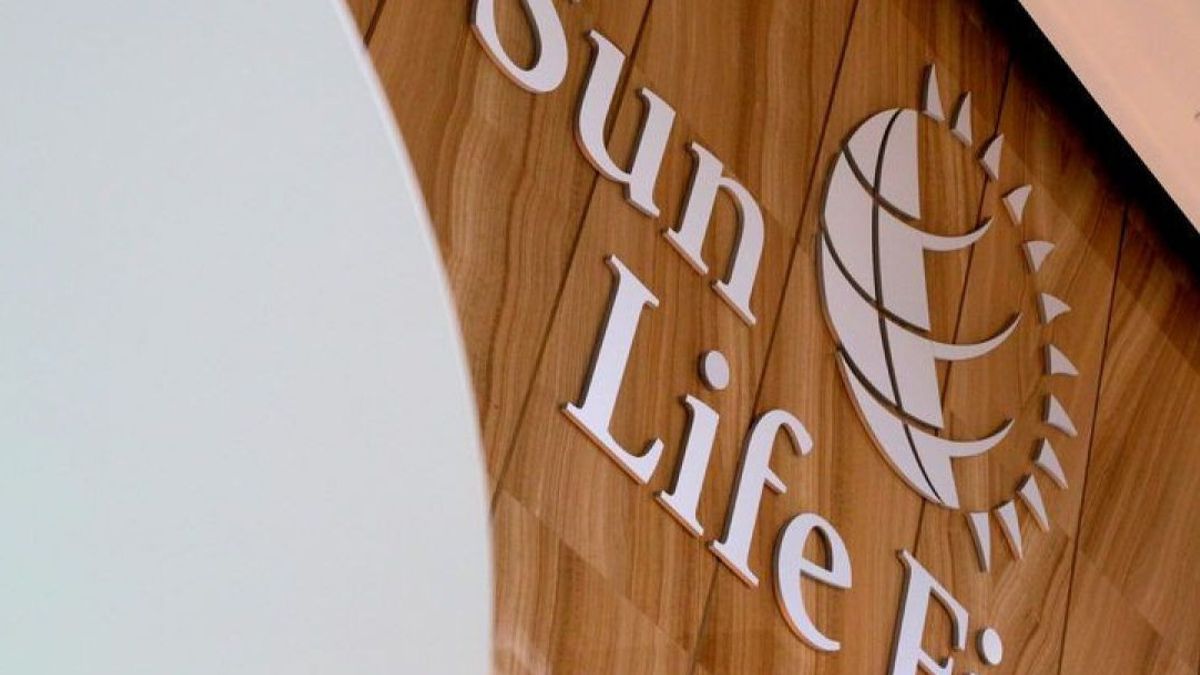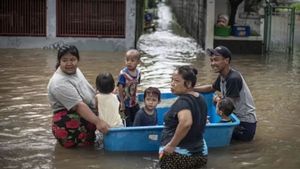JAKARTA - New research by Sun Life reveals hidden costs of living with type 2 diabetes and its impact on finance and mental health in Asia, highlighting the urgent need for education, prevention, and access to care.
The Sun Life survey, entitled Healthy Habits, Healthier Futures: Preventing Diabetes in Asia, interviewed 3,647 people in Indonesia, Hong Kong, Malaysia, the Philippines, Singapore, and Vietnam regarding their awareness of the risk factors for diabetes, treatment, and prevention. This survey includes 600 people who currently live with type 2 diabetes, providing insight into life with this condition.
The study follows an endemic increase in diabetes cases in recent decades, with more than 540 million people living with these conditions worldwide. More than 90 million of them are in Southeast Asia, where the number of adults with diabetes is expected to jump to 152 million by 2045, which presents serious public health challenges. Type 2 diabetes is the most common type of diabetes, covering about 90 percent of global cases.
This study revealed that although the number of cases continues to increase, few people are actively taking steps to reduce their risk of developing diabetes or learning more about this condition. For those suffering from diabetes, the impact is not only physical.
The Hidden Financial And Mental Health Impacts Of Type 2 Diabetes
In addition to the physical impact of diabetes, this condition has significant financial costs, preventing many people from getting proper health care. A third (37 percent) of those living with diabetes in Indonesia report 'devere' or significant financial impacts in their lives, with 81% unable to consistently finance appropriate care.
Financial concerns regarding diabetes are even more dominant than health concerns. As many as 74 percent of non-diabethesis feel'very worried' or 'worry' about the financial burden that may occur due to type 2 diabetes diagnosis, which highlights the need for health insurance protection.
The study also revealed the hidden mental health impact of the disease, with 63 percent of diabetics reporting negative impacts on their mental health after the diagnosis. This is exacerbated by the social impact experienced at home and at work; 70 percent of diabetics feel judged by family and friends after being diagnosed and 74 percent face assessments or prejudices at work regarding their condition.
Kah Jing Lee as Sun Life Indonesia's Chief Client Officer said the physical, mental, and financial burdens of diabetes could be enormous. The number of diabetics who are unable to afford consistent treatment shows the urgent need for access to affordable medicine.
"As an insurance company, we are committed to increasing awareness about the importance of preventing type 2 diabetes as early as possible through habituating an active and healthy lifestyle for the younger generation and supported by providing sports access for communities in need," he said, in a written statement, Thursday, November 14.
Few People Take Prevention Steps
The risk of diabetes continues to increase in Indonesia, but only 47 percent of the population undergoing annual examinations for type 2 and 36 percent diabetes has never conducted an examination, which causes unexpected diagnosis and cases that should have been prevented.
Only a small fraction consistently takes preventive measures such as maintaining a healthy diet, monitoring weight and blood sugar, and exercising regularly. One in five people do not make sure their children eat healthy foods, and 27 percent do not encourage their children to exercise.
Many people have difficulty understanding nutritional information. As many as 31 percent have difficulty identifying sugar and fat hidden in their diet, while 23 percent have difficulty understanding the impact of certain foods on their blood sugar levels.
Regular exercise, healthy diet, and early screening have the power to reduce diabetes risk, but rely on increased awareness. Since 2012, Sun Life has allocated more than $53 million to fight diabetes globally through strategic partnerships that support the most vulnerable communities.
Through local partnerships with hospitals, medical institutions, and foundations across the region, Sun Life provides access to blood glucose examinations, nutrition and counseling advice, sports programs, diabetes care packages, as well as local education programs for children, which can empower the public in monitoring their diabetes risk.
Lack Of Physical Activity Increases Diabetes Risk
The decline in physical activity, exacerbated by the lack of safe space, increases the risk of diabetes across Asia. More than a third (35 percent) of respondents in Indonesia reported a decline in physical activity in the last five years, with young people more likely to report this decline. Among those reporting a lack of exercise, 60% mention the lack of access to safe and quality sports spaces in their area.
Having an accessible sports space is essential to keep people active, healthy, and involved. Since 2023, Sun Life has partnered with the Beyond Sport social change foundation to launch Hoops + Health, a community program that encourages healthy activities and lifestyles through basketball by increasing community access to basketball facilities and coaches across Asia. To date, Hoops + Health has helped more than 14,000 people in communities in need to stay active and enjoy sports.
General Myth Still Exists, Highlighting The Importance Of Education About Diabetes
Diabetes is one of the most serious public health problems facing Asia, but a common myth about this condition is still circulating, especially regarding risk factors.
Nearly one in three people (46 percent) believe that type 2 diabetes only affects individuals with overweight, 68 percent believe that diabetes is only caused by excessive sugar consumption, and 47 percent think diabetes treatment always requires insulin injections.
The survey also found that diabetics had low risk awareness before their diagnosis. As many as 35 percent reported they had a bad or very bad understanding of the condition before the diagnosis. More than a third of diabetes (28 percent) believe they are at low risk or don't consider their risk at all before the diagnosis, while only 13 percent diabetesia believe they are at high risk.
These findings suggest that misunderstandings about the risks and causes of diabetes can hinder prevention, early diagnosis, and treatment, so education about this topic becomes very important.
Steven Ho as AVP, Medical Director said his research shows that it is very important to deal with significant knowledge gaps about diabetes, risk factors, and the importance of early diagnosis and prevention.
"By increasing awareness and dismantling general myths, we can empower individuals to make better health choices. Adopting preventive measures such as undergoing healthier diets, exercising regularly, and monitoring blood sugar levels can significantly improve health outcomes and even lead to remission," explained Steven.
Lack Of Understanding On Type 2 Diabetes Treatment
While there is no cure, medical professionals say many people can reverse diabetes's condition within one year of diagnosis through positive lifestyle changes such as healthier food options and more exercise. Adopting this lifestyle change can keep glucose levels normal without the need for insulin. However, awareness about the potential to reverse diabetes is still limited. Only half of the general public believes that type 2 diabetes can be managed without drugs.
Only a few diabetics in Indonesia are actively trying to recover their condition. While 91 percent of diabetes believes that remissions may occur, most of them don't believe it can be achieved within a year although many medical professionals suggest that this is possible.
Empowering people to effectively manage their condition requires access to health care and medical advice, education about the latest management strategies, behavioral support for lifestyle changes, as well as affordable and accessible food and exercise options.
The English, Chinese, Japanese, Arabic, and French versions are automatically generated by the AI. So there may still be inaccuracies in translating, please always see Indonesian as our main language. (system supported by DigitalSiber.id)









